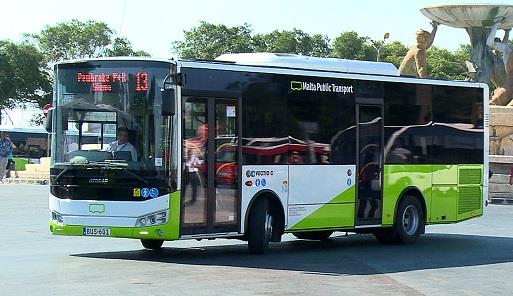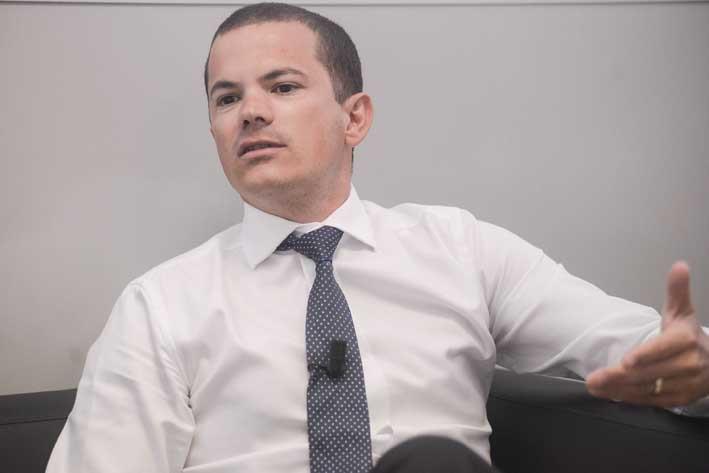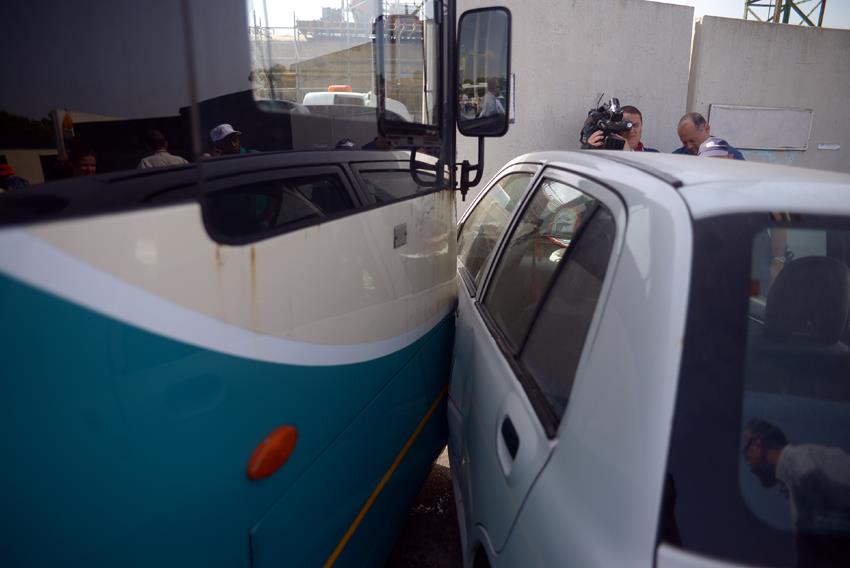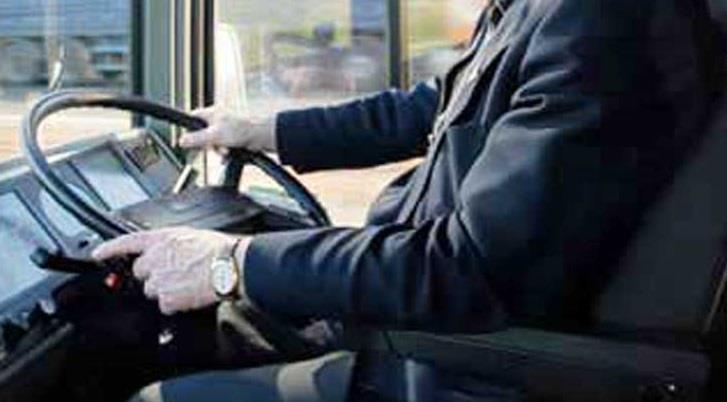Malta Public Transport General Manager Konrad Pulè tells Neil Camilleri that the public transport company’s financial situation is “on track” and the Spanish-owned company should become profitable next year. He also speaks about the need for change within the system, but insists the right balance will be found between the needs of employees and those of the company.
Last week Government announced some changes to its network, including the introduction of new routes and an increase in trip frequency. Is this the solution for public transport?
It is an important part of the solution. We are adding on to the existing network by providing services in certain areas that were previously not covered. We are introducing some new routes and tweaking others. We are also increasing the frequency of some routes. Government decided to introduce the system in phases and we agree with that as it gives the time to the bus users, and to us to get acquainted with the changes. The first phase will start on 13 September and the next phases will come into effect in October, November and December until the whole new network is in place by the end of the year.
As an operator we were not involved in the network design as this was done following an extensive public consultation exercise, although we did give our feedback. From our end, throughout the phased implementation of the network changes, we will also be making parallel internal changes to our operations, such as driver assignments and the way we manage and control the service. We believe things will improve once the whole system is in place. For a start we will have more buses and increased frequencies. As a bus operator we are working to change the way we run the service – ultimately, neither we nor the public is happy with the current level of service.

Will the system put the company under strain? Will the current subsidy be enough once the added routes and frequencies come into play?
The newly-announced changes to the route network were always a part of our plan as they were published in the expression of interest that was launched last year. That is why we purchased 142 new buses right away. We knew we would need them. So, no, this plan does not put any undue pressure on the company.
Speaking about finances, how is the company doing?
This is a very challenging year for the company. We knew we were inheriting a company that was suffering financial losses, and part of our plan is to turn this around and make the company profitable next year. The company has been operating for eight months now and we are pretty much on track.
Maybe the public has given more attention to the tallinja card issue, which was a big challenge to implement. However our expectations were exceeded by far. We never expected to have 200,000 registrations – equal to half the Maltese population – in the space of just three months. 110,000 people have used their card, and over 70% of all our passengers are using a card instead of paying cash on the bus. At the beginning of June only 1% were using a card. This success was a result of the support and cooperation of the public and of our employees. Yes there were problems, but when you look at the bigger picture, I believe that this has become a success.

80 new buses have been delivered so far. Have they had an impact on the system?
The new buses have all become part of the fleet, which is now more modern and more reliable. The feedback from drivers, mechanics and passengers is very positive. The idea is to utilize as many buses as we can all day long and reduce the amount of buses off the road - therefore reliability is of paramount importance.
The first 80 buses have already resulted in an overall increase in our fleet which allowed us to return 23 of the buses that were leased last year from the UK. When the remaining 62 new buses arrive this week, we will be able to return the remaining 22 leased buses. This will mean that almost half the fleet will be made up of new buses.

Has this surplus of buses led to a decreased in ‘overcrowding?’
Yes it has decreased. The truth is that we did not have enough buses when we started and we knew this from the start. That is why we invested in more buses. Secondly, the number of passengers is increasing year on year. June was very challenging for us because the passengers increased and we did not have enough buses. Now that the route network is being changed with increased frequencies and new routes, we will see an overall increase in our passenger carrying capacity.
Is it true that drivers were unofficially instructed to carry more passengers during that period?
No, that is not true. There is a limit on the number of passengers that can board a bus and we certainly do not tell the drivers to exceed that limit. I appreciate that our drivers might be under a lot of pressure on the more popular routes, and that it is difficult to refuse passengers, but their instructions are clear. Carrying more passengers than what is allowed is not safe and must not be done.

Have accidents involving buses decreased?
The figures show that bus accidents have decreased year after year. I am not saying that we are satisfied with the figures, but the numbers have gone down, even though there are some accidents that should easily be avoided.
I am very passionate about road safety and there are many measures that are being implemented to improve safety. The maintenance cycle of all buses has been improved but there are still other measures that we are working on. For example driver training needs to improve, particularly when it comes to the attitude and behavior towards safe driving, and this takes time.
We are investing in a new driving simulator for buses next year. The simulator is not really there to teach how to drive. It is there to help drivers develop their abilities and skills in different situations. Such training can help us reduce the number of accidents further.

People sometimes complain about the attitude of drivers. How does the company discipline these employees? How many employees has the company sacked?
We employed 300 additional drivers this year, bringing the total to around 900 drivers. There is a minority of drivers that may have problems with their attitude and we are working on it, but we surely cannot generalise and say this about all our drivers.
Also, we have to be fair with our employees: in some areas drivers do not have an adequate place where to take a break. We are in discussions with the union to improve these facilities. Our idea is to invest in our employees to provide them adequate conditions that are reasonable both to them and to the company.
There were a number of employees that had to be suspended or dismissed due to the severity of the cases, and unfortunately it is the only way. However, the numbers are few.
People used to say that the company would bring over many Spanish drivers, who would take up jobs instead of the Maltese? Is this the case?
No, the absolute majority of our employees are Maltese. We try to employ Maltese people first and we only engage foreigners if we do not find enough workers locally. Although the management team is mixed, the majority of drivers, mechanics and other staff are Maltese. At the moment there are just over 100 drivers that were recruited from overseas out of a total of 900 drivers, and most of them are British and Italian. We do however have a number of experienced people from Spain that are supporting us with the implementation of the various changes, but adapting them to our local context.

Weekly tickets were reportedly out of stock and commuters had to buy the more expensive daily tickets.
We were low on stock some weeks ago due to a faulty batch of cards, but not out of stock. The new cards are manufactured abroad and this involves a longer lead time than we would like to have. We would prefer to have them manufactured here, but this is not possible for the time being. We also had a greater demand than we originally anticipated. However we sorted the issue out within a couple of days. It will not happen again.

Bus passengers increased by 11% last year over the previous year. It this purely an increase in regular bus passengers or does it take into account, say, the increase in tourists during the summer?
It includes everyone. I am not aware of specific studies that make such a distinction. One interesting statistics is that, before 2014, 30% of bus users also had access to a car, which meant that they were opting for public transport. That is positive. From this year, the new card system will give us more specific data on passenger numbers which will, in turn, help us plan better.
Are you doing enough to change this culture of using personal means of transport? Can that hurdle ever be overcome?
I believe that we can offer a credible service – one that people can rely on. I agree that this is not just about changing the routes, introducing a new card, or investing in more buses, but also about having a long-term plan to improve the public transport service. Our priority at the moment is to make the necessary changes within our organization to be more efficient.
St James Ditch is being incorporated into the Valletta Terminus. How are things moving along?
That is a government project which is very important given that more buses will be entering the Valletta Terminal with the new network. The government is responsible for the infrastructure and we are contracted to provide our services out of these facilities. The extension works are not necessary for the September phase of the new route network. In fact, the facility should be ready in mid-October, in time for the second phase of the new network. Eventually the area will be further upgraded, including the installation of escalators and other facilities.
People complain that some bus shelters hardly provide any shelter from the sun and rain. What are you doing about those?
Again, the infrastructure is Transport Malta’s responsibility, not ours. I know that a lot of work has been carried out to improve these facilities and there are plans to keep on with this upgrading. In the Valletta terminus extension, for example, there will be new and adequate shelters.
Are you at least insisting with the government for better infrastructure?
Yes, after all it is in everyone’s interest. Obviously, first we focus on the most heavily used areas, like Valletta and we are in continuous discussions with the government on this.

The government banned the use of bendy buses. Could these have not been retained for the major routes? They do carry a lot of passengers.
The government decided that bendy buses should no longer be used. We decided to invest in smaller buses, but this does not mean that we do not need the larger, 12-metre buses that we already use on various routes, as these routes serve more passengers.
The bendy buses are still being kept in a field in San Gwann. Who do they belong to?
They now belong to a private company that bought them from Malta Public Transport last year.

The country is playing with the idea of having an alternate means of transport, like a monorail system. Would this present a threat to MPT?
No I do not think that it would be a threat. Take the monorail example; it would need a transport system to feed it. We would need to adapt the route network and bus service to that requirement so, yes, the service would need to evolve. The two systems should be able to complement each other and that would need to be planned well. There are other means of transport that we could integrate better with, such as the Sliema and Valletta ferries.
Do the Spanish directors have any future plans for Malta?
It is still early to speak about that.
Public transport was and still is a hot political issue. Do you think that politicians, instead of continuously attacking the system, should work hand in hand to make it a success?
As long as the criticism is justified, and that there is dialogue, we accept that public transport is a political issue, as the country deserves a good service. I think politicians at least agree on that, although it would be easier if we all worked together on this issue.
But we have to be realistic. There will always be those who will not change their ways, or those who simply cannot switch over to public transport. I believe that people may be willing to change their ways and start using public transport more and we are committed to improve the level of service. This would be beneficial to the country, irrespective of the political aspect.